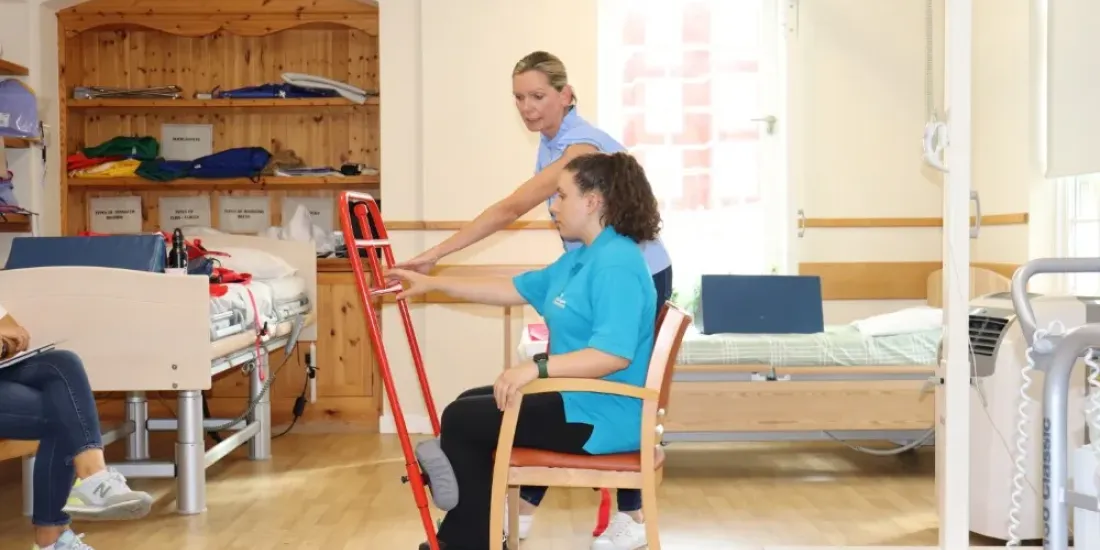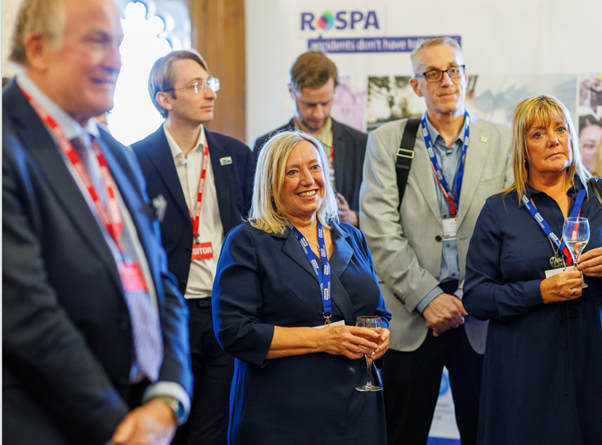
New qualification will enable care workers to help more people
- The Proportionate Care Practice Qualification (PCQ) upskills care workers to perform more people moving and handling duties on their own, by adopting a single-handed care approach
- The PCQ will free up care workers to support more people, increasing capacity in the social care sector and allowing more discharges from hospitals
- The PCQ has been developed by the Royal Society for the Prevention of Accidents (RoSPA), in partnership with A1 Risk Solutions and with the support of Care England, Skills for Care, and NHS Trusts, as part of a suite of health and social care qualifications

Service users, care workers and the entire health and social care systems stand to benefit from the new Proportionate/Single-Handed Care Practice Qualification (PCQ) being launched by the Royal Society for the Prevention of Accidents (RoSPA) on April 2. Health and social care providers traditionally apply a standard policy that requires two handlers for care activities involving manual handling, due to the belief that it is unlawful to provide moving and handling with less than two handlers. This can inadvertently lead to pain and distress for service users waiting for enough care workers to be available to help them, and places unnecessary constraints on care workers’ abilities to support as many people as they are able.
These constraints can add to the pressures within the whole of health and social care. Difficulties finding an appropriate number of staff to provide suitable care packages may delay discharges from hospitals, squeezing the number of beds available for seriously ill patients and increasing ward transfer times in acute settings and waiting lists overall.
A Level 2 qualification designed by RoSPA in partnership with A1 Risk Solutions with the support of Care UK, Skills for Care and NHS Trusts, and regulated by Ofqual, the PCQ aims to develop each learner’s knowledge, skills and understanding so they can facilitate Proportionate/Single-Handed Care that promotes privacy, independence and flexibility for service users, while not compromising the health, safety and wellbeing of either party.
Alongside the benefits for individual staff members and service users, training staff in the PCQ shows care providers’ commitment to Continuing Professional Development, helping to attract and retain staff by emphasising the importance of their invaluable frontline work.
The PCQ will be launched at an event on Wednesday, April 2nd at the House Of Lords hosted by Baroness Watkins, RoSPA Vice President and member of the NHS England Board. In advance of the launch, Baroness Watkins said: “Care workers are a vital part of the UK’s health and social care system, delivering kindness and support to hundreds of thousands of people every day. Yet even while demand for social care increases, with requests for support from new clients reaching over two million in 2023-24, care workers’ important contribution to keeping the country healthy and safe is often overlooked.
RoSPA’s new Proportionate/Single-Handed Care Practice Qualification recognises the skills care workers already possess around moving and handling vulnerable people, and allows them to develop their practice to deliver effective, safe and dignified care to more people.
RoSPA also hopes this qualification will increase the number of people seeking and staying in a social care career, strengthening a workforce who are essential to tackling many of the challenges around waiting lists and discharge that affect people who need safe and timely care, and the NHS and other services that provide it.”
Deborah Harrison, Clinical Director and Founder of A1 Risk Solutions, said: “Proportionate Care has incredible benefits for service users, providing person-centred care that meets their individual needs. It means they build better relationships through spending more time with their carer, helping them to feel less isolated.

Proportionate Care also keeps service users healthier by getting people home from hospital in a timely manner. Research shows that Proportionate Care reduces readmission rates to hospital by 11%, which is not only beneficial for individuals but improves patient flow throughout the entire system, saving the NHS time, money and bed space.
The Proportionate/Single-Handed Care Practice Qualification is also a fantastic initiative to engage the grassroots social care workforce by giving them direct training that will increase their skills and job satisfaction. Our social care system simply wouldn’t function without this dedicated workforce, and this qualification will give them the credibility and respect for their skills that they deserve.’



